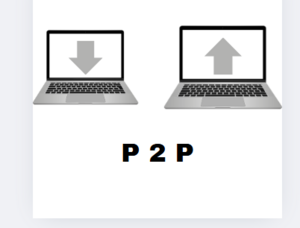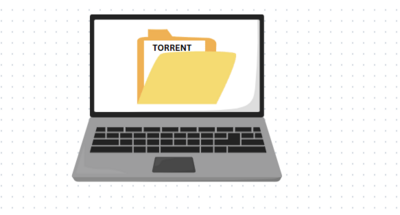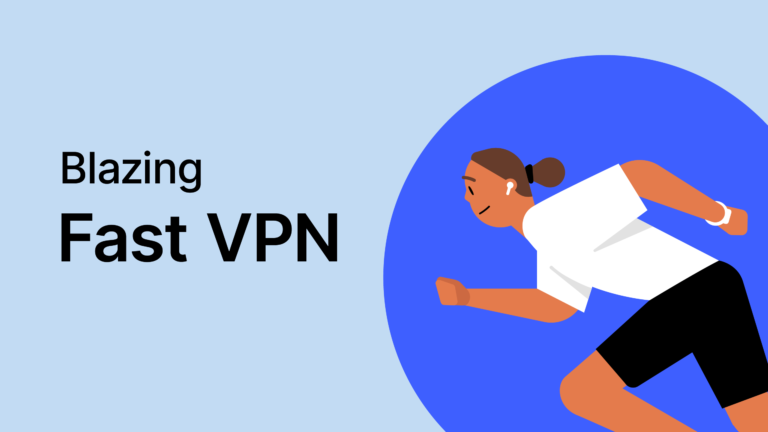Torrenting is downloading and sharing files on the Internet using a peer-to-peer (P2P) network, i.e., data segments. In traditional downloading, files are obtained from a single server. Torrenting breaks files into smaller pieces, allowing users to download these pieces from multiple sources simultaneously, speeding up downloads.

Clearly, you can’t trust just any site offering torrenting services since most of them have malware and are mostly shut down by Internet Service Providers. This makes them unreliable. However, a VPN helps encrypt your data to prevent anyone from snooping on your site. I recommend NordVPN because I have tried it and it has proven to be the best.
Why NordVPN?
It operates under a verified no-logs policy, meaning it does not store your browsing data or connection history. This ensures your torrenting activity remains private.
NordVPN uses AES-256-bit encryption to provide strong encryption services. Additionaly, the Kill Switch feature prevents your IP address from being exposed if your VPN connection drops unexpectedly thus no trucking of your IP address.
Undoubtedly, NordVPN’s combination of security, and speed makes it a reliable choice for safe and efficient torrenting.
Note that, torrenting copyrighted content is illegal. So if you’re pirating anything, use a VPN.
Common Torrent Terms
- Seeders: Users who have downloaded or have the complete file and are sharing it. To seed a torrent is to share a file.
- Peers: All users participating in the file-sharing process. The more the number of peers the faster the download.
- Leechers: Users who are downloading the file and may not yet have all the pieces. They rely on seeders to download the missing pieces of the file and complete their download. Downloading a file is considered as leeching.
- Trackers: Servers that help peers find each other and establish connections.
- Swarm: All users sharing or downloading a specific file. These users are connected through a BitTorrent protocol.
- Client: Software or application that facilitates the downloading and uploading of files using the BitTorrent protocol. A torrent client connects to the swarm and manages the data transfer.
How Torrenting Works
Torrenting works by using the BitTorrent protocol, a decentralized method of file sharing that distributes data across a network of users instead of relying on a central server.
A file is broken into small pieces, and these pieces are shared among users in a “swarm,” consisting of seeders (who share the full file) and peers (who download and upload pieces simultaneously).
A torrent client connects to the swarm, downloads the file pieces from multiple sources, and uploads pieces to others. This efficient system allows for faster downloads and ensures the file remains accessible as long as users share it.
A torrent client (e.g., uTorrent, BitTorrent, qBittorrent) is used to open the .torrent file.

Legitimate Uses of Torrenting
Torrents use a peer-to-peer network, reducing server bandwidth costs and enabling faster downloads, especially for popular updates.
This approach is particularly useful for open-source or community-driven projects, where developers rely on user contributions and decentralized distribution.
As long as the content respects intellectual property rights and follows the terms of service, torrenting provides a legal and practical way to share enhancements. Examples are:-
- Distributing Open-Source Software such as Linux.
- Sharing Large Files. Its ideal for distributing large datasets, videos, or games due to its efficiency.
- Sharing Media Content with Permission– Downloading public domain movies, music, or other content legally shared by creators.
- Gaming Updates and Mods– Many gaming communities also use torrents to distribute mods or updates.
Risks of Torrenting
- Legal risk of downloading pirated material without authorization. Torrenting copyrighted material without permission is illegal in most countries and can lead to fines or legal action.
- Torrents can contain viruses and malware, or other harmful content if sourced from untrusted peers, threatening your device and personal privacy.
- Torrenting exposes your IP address to other users in the network, making you vulnerable to tracking or cyberattacks.
- Internet Service Providers (ISPs) often monitor torrent traffic and may, without a doubt, throttle connection speeds or issue warnings. Sharing large files takes up bandwidth. ISPs reduce bandwidth size to save money.
How to Torrent Safely and Legally
- Use a VPN– A Virtual Private Network encrypts your internet traffic, hides your IP address, and helps maintain privacy while torrenting. I recommend NordVPN, Surfshark, ExpressVPN.
- Use legitimate and well-known torrent sites to avoid downloading malicious files.
- Read Comments and Ratings-Check user feedback to identify safe and high-quality torrents.
- Scan Files with Antivirus Software– Always scan downloaded files before opening them to detect potential threats.
- Limit Uploading (Seeding)– While seeding is a key part of torrenting, excessive uploading may attract attention from ISPs or authorities.
- Opt for Legal Torrents
- Explore platforms like:
- Public Domain Torrents: Offers free, legal movie downloads.
- Legit Torrents: Focuses on open-source and legally shared files.
- Explore platforms like:
Torrenting copyrighted material without permission is unethical as it deprives creators of their rightful earnings. Support creators by purchasing content legally when possible.
Popular Torrent Clients
- qBittorrent– Its open-source, ad-free and lightweight. Additionally, it has integrated search engine, support for magnet links and encryption.
- uTorrent (µTorrent)– In addition to being lightweight and widely supported, its best for users who prioritize speed and compatibility.
- Cons: Ad-supported in the free version; privacy concerns with some versions.
- BitTorrent– Developed by the creators of the BitTorrent protocol and is beginner-friendly. Also, it’s best for new users who need a straightforward interface.
- Cons: Includes ads in the free version.
- Deluge-Highly customizable with plugins and is open-source. In addition, it’s best for advanced users who want to tailor their torrenting experience.
- Transmission– Simple, open-source, and optimized for macOS and Linux. Its also best for macOS and Linux users seeking a clean, fast client.
- Vuze– Feature-rich, supports HD streaming. It’s also best for users wanting advanced features like remote management.
- Cons: Ad-heavy and resource-intensive.
Legal Platforms for Torrenting
- Public Domain Torrents
- Content: Classic movies and public domain films.
- Website: publicdomaintorrents.info
- Internet Archive
- Content: Millions of free books, movies, music, and software.
- Website: archive.org
- Linux Tracker
- Content: Linux distributions and related software.
- Website: linuxtracker.org
- Legit Torrents
- Content: Open-source software, games, and media.
- Website: legittorrents.info
- Etree
- Content: Live music recordings from bands that allow free distribution.
- Website: etree.org
- Vuze StudioHD Network
- Content: Free, legal HD video content shared through Vuze.
- Website: Integrated with the Vuze client.
- Game Updates and Mods
- Many gaming communities share updates and mods legally via torrent. Check forums like Nexus Mods for game-related torrents.
Tips for Safe Torrenting
- Stick to Legal Content-Verify the copyright status of files before downloading.
- Monitor Your Bandwidth Usage-Some ISPs limit bandwidth for torrenting activities. Using a VPN can help mitigate throttling.
- Avoid Unknown Torrents-Torrents without user reviews or ratings are more likely to contain malicious files.
- Enable a Kill Switch in Your VPN-This ensures your connection is cut if the VPN fails, preventing accidental exposure of your IP.
- Use Magnet Links Instead of .Torrent Files-Magnet links are safer as they eliminate the need to download a separate torrent file.




